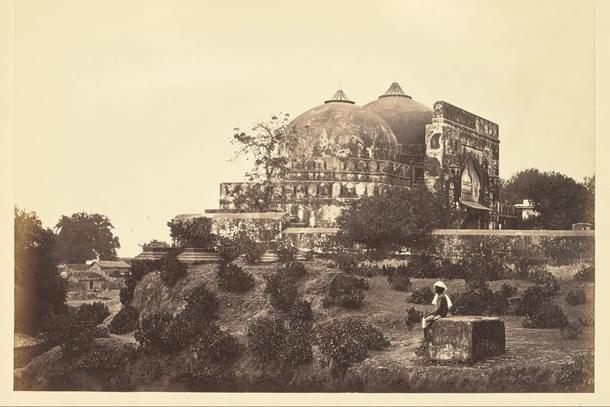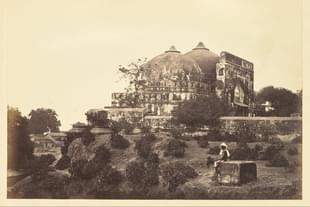News Brief
Revised NCERT Book Does Not Mention Babri Masjid, Calls It Three-Dome Structure — Here Are Five Major Changes
Nishtha Anushree
Jun 16, 2024, 02:01 PM | Updated 02:01 PM IST
Save & read from anywhere!
Bookmark stories for easy access on any device or the Swarajya app.


The new Class 12 Political Science textbook has hit the markets after revisions that were announced in April this year. Major changes are seen in the topic "Ayodhya Issue" in Chapter 8 of the book.
1. Name game: While the earlier version mentioned Babri Masjid as a 16th-century mosque built by Mughal emperor Babur’s General Mir Baqi, the latest version instead of naming it calls it a "three-dome structure".
"A three-dome structure was built at the site of Shri Ram’s birthplace in 1528, but the structure had a visible display of Hindu symbols and relics in its interior as well as its exterior portions," the book reads.
2. Mobilisation: Earlier version gave two pages to the mobilisation "on both sides" after the locks of the masjid were opened in February 1986 by mentioning rath yatra, kar seva, demolition of the structure and subsequent communal violence.
The new book mentions concerns of the Hindu and the Muslim communities and says, "Subsequently, tensions heightened between both communities over ownership rights, resulting in numerous disputes and legal conflicts."
3. The demolition: The earlier book mention that the BJP expressed "regret over the happenings at Ayodhya" and referred to the "serious debate over secularism" after demolition of the structure.
"Both communities desired a fair resolution to the longstanding issue. In 1992, following the demolition of the structure, some critics contended that it presented a substantial challenge to the principles of Indian democracy," the new book reads.
4. Removals and additions: While the newspaper clippings from 7 December 1992 with headlines like “Babri Masjid demolished, Centre sacks Kalyan Govt," have been removed, the 9 November 2019 Supreme Court judgment has been added.
5. Verdict: Earlier, a judgment by the then Chief Justice Venkatachaliah and Justice G N Ray of the Supreme Court convicting former Uttar Pradesh Chief Minister Kalyan Singh was quoted.
Now, the 9 November 2019 judgment is quoted as, "...Faith and belief of Hindus since prior to construction of Mosque and subsequent thereto has always been that Janmasthan of Lord Ram is the place where Babri Mosque has been constructed..."
Nishtha Anushree is Senior Sub-editor at Swarajya. She tweets at @nishthaanushree.





